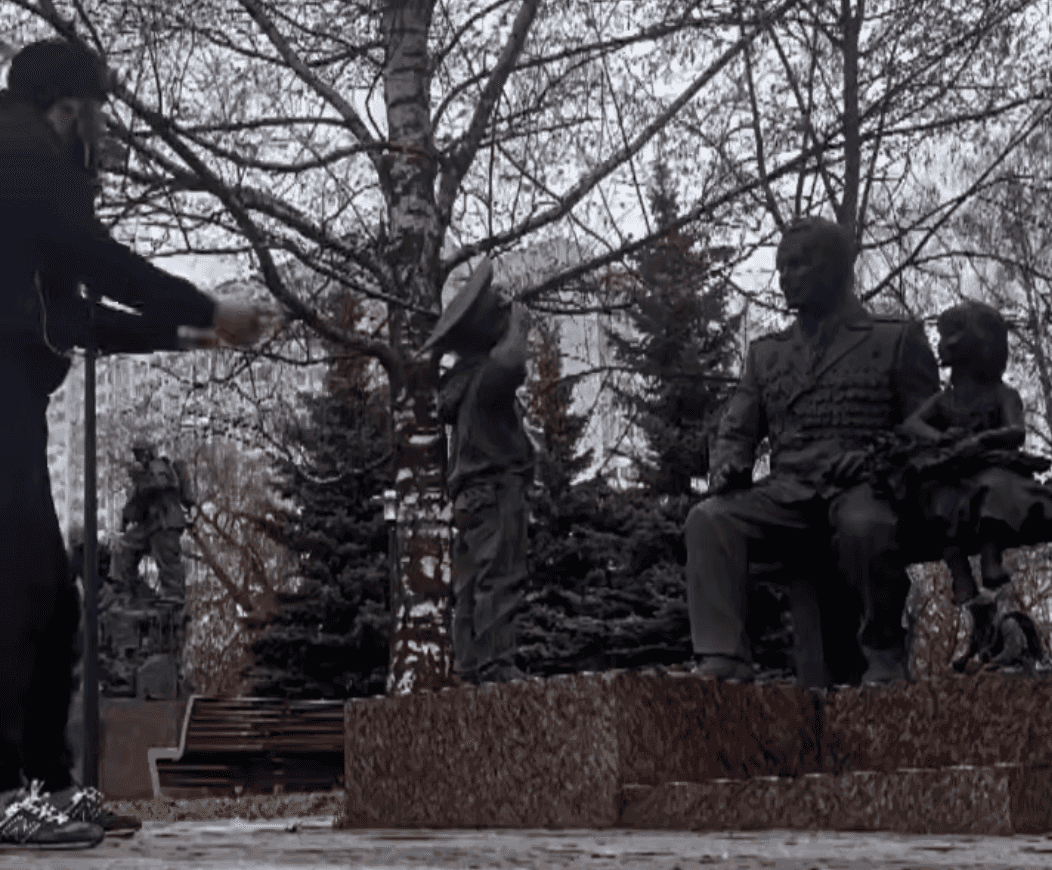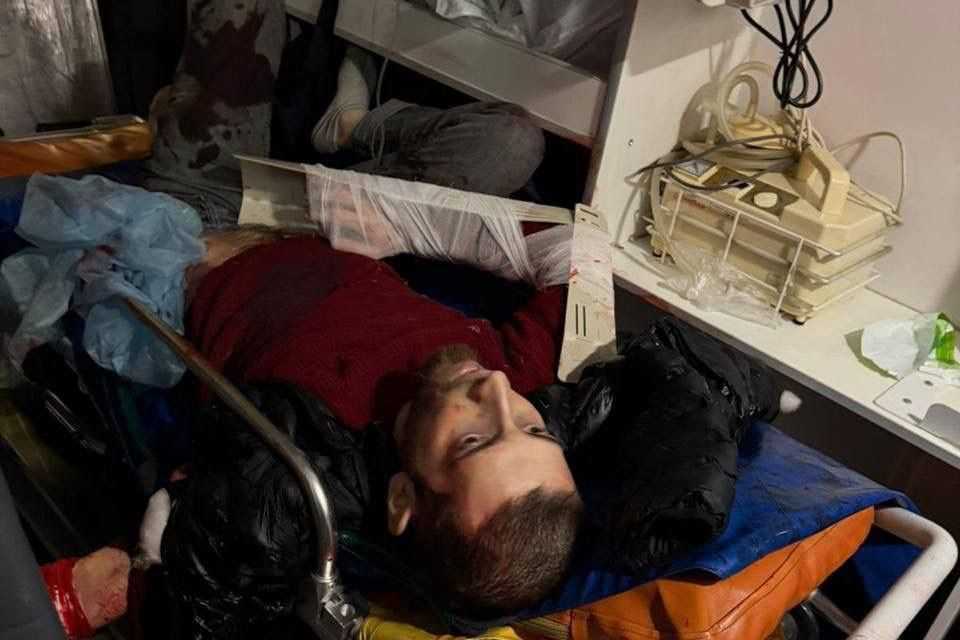![[Voice from Daghestan] Everyone is beaten](/_next/image/?url=https%3A%2F%2Foc-media.org%2Fcontent%2Fimages%2Fwordpress%2F2019%2F12%2Fdaptar.jpg&w=3840&q=90)
 Daptar columnist Zaira Abdullayeva talks about the everyday reality of domestic violence in Daghestan
Daptar columnist Zaira Abdullayeva talks about the everyday reality of domestic violence in Daghestan
 …He started to beat her on the very first day, even on the first night. He hit her in the face. For what or why — she didn’t ask. She never asked. Later, he stopped beating her face, only other parts of her body. ‘His friends in law enforcement taught him this’, Izha says. She talks about her late husband with an indifferent smile. Very often there were no bruises, but her eyes grew dark.
…He started to beat her on the very first day, even on the first night. He hit her in the face. For what or why — she didn’t ask. She never asked. Later, he stopped beating her face, only other parts of her body. ‘His friends in law enforcement taught him this’, Izha says. She talks about her late husband with an indifferent smile. Very often there were no bruises, but her eyes grew dark.
He beat her with his palm, with a belt, with a wet towel.
At first, he used to put his hand over her mouth so that his parents would not hear.
‘Soon I realised that you cannot scream. I kept a small rope in my pocket. I would bite down on it with my teeth. Once he forgot his wallet; I ran for the wallet in the room, but took a while. He punched me in my shoulder — and at this moment our neighbour came out into the hall. She had this face… A serious man in a suit hits his wife with a full swing, and then says hello, as if nothing happened’, Izha says.
Nothing happened; it never did. ‘This is a family matter’, Izha says. Her father-in-law did not know anything, but he was sick and died very soon after the marriage. Her mother-in-law knew, but was mute all this time; she never interfered.
‘She once told me, “Well, a wife needs to be taught”, but he didn’t beat just me. He would hit his sister, and his mother was still mute. She told her daughter, “everyone is beaten!” although her husband never touched her’, Izha says.
However, Izha is well aware that ‘everyone is beaten’.
‘I will marry you off at the age of 15’
Izha’s father murdered her mother when their oldest daughter was only six. They told everyone that she fell down the stairs.
‘We used to live in a village. Everyone knew that he used to beat my mother. Even the district police officer knew. But he was never jailed. We moved in with his sister in Makhachkala. Her husband died and she didn’t have any children; she raised us. He never beat us. I only remember him holding a bottle. Sometimes he used to throw heavy objects at us. I have a scar on my neck, can you see? He threw an iron at me. He used to say terrible things to us. He used to say — “I will marry you off at the age of 15 to whoever pays me the most, before you dishonor me” ’.
Her father died 10 years after the move, from vodka, according to Izha.
‘I was 14, Tavuna was 16, and Fatima was 11. At his funeral the three of us ran off to laugh in the barn. We were happy that he had died and that we wouldn’t be forced to marry. We pretended we were crying and then we would run off. But Tavuna was still forced to marry. She didn’t want to — her husband was 15 years older than her. He lived in Turkey. But it was good that she married; her husband didn’t beat her and she has nice sons’, Izha said.
They couldn’t find a groom for Izha, she has been limping from birth, for a long time.
‘My aunt gave up on me already, but she had a problem — Fatima. An Avar, her classmate, courted her. My aunt would say, “you can only marry a Kumyk”, and forced her to marry a distant relative after finishing school. She didn’t know how to live in a village; she was one when we left the village. But there were cows and chickens. We didn’t see her for two years — until her husband brought her to our door’, Izha says.
He brought her covered in a veil and left. Fatima weighed just 40 kg. Her hand was broken in two places. She was hardly breathing.
‘I didn’t know where to go — I knew that everyone is beaten’
‘We took her to the hospital. The doctors said that she had tuberculosis. Aunt said that she would die, they even collected money for the funeral. But Sultan started to visit her, this classmate of hers. He treated her, bought medicine for her — good products. He sent her to a special sanatorium while he went to her husband. He beat him. He agreed on a divorce. Now everything is fine with her; she lives in Krasnodar. They have a big house and she gave birth to a girl. She almost never calls us. “You didn’t protect me”, she says’ Izha continued.
‘How could we?’
Everyone was beaten. Mother was beaten. Aunt was beaten.
And Izha.
‘The worst was with the wet towel. I could hear him from my room squeezing the towel. His hands were so huge. He would squeeze the towel almost dry. He would close the door and beat me on my chest. Once he was sick and he lay still, he would pinch my chest very painfully. I even stopped going close to him. His mother took care of him… When he was buried I was laughing; everyone said it was nerves’, Izha says.
Recently Izha saw her only son married. A weak guy; beaten by a towel in the womb.
When his father died, her 12-year-old son asked Izha why she never left.
‘I was so surprised’, Izha says, ‘I didn’t know what to answer. I didn’t know where to go — I knew that everyone is beaten’.








